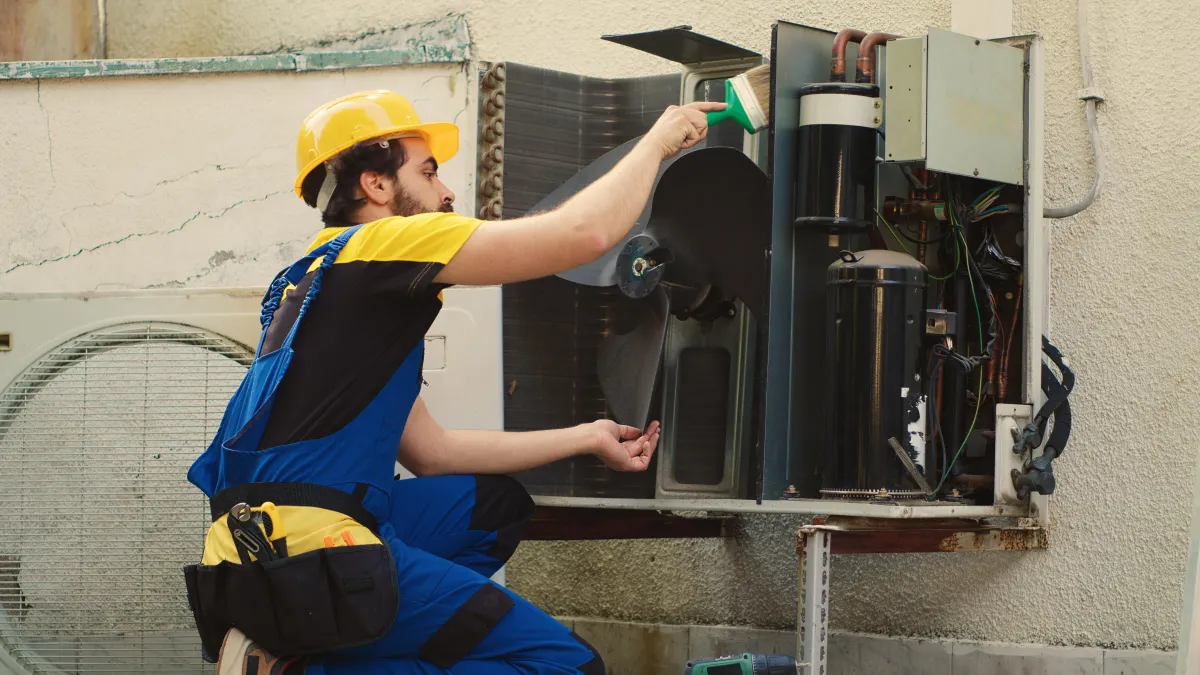
How to Get Inspections Even for New Build Homes in DFW
How to Get Inspections Even for New Build Homes in DFW
By Steven J. Thomas

Direct Answer
Yes — you should absolutely get inspections on a new construction home in Dallas–Fort Worth.
Even brand-new homes can have issues ranging from minor cosmetic defects to major structural oversights.
Hiring independent inspectors at key stages of the build helps protect your investment, verify workmanship, and document construction quality before closing.
1. Why Inspections Matter for New Homes
Many buyers assume a new build doesn’t need an inspection — after all, it’s new, right?
But builders work with multiple subcontractors on tight deadlines, and local city inspections only cover minimum code compliance, not overall quality.
Common issues found in new DFW homes include:
Missing insulation or attic ventilation
Improper grading or drainage
HVAC or plumbing misalignment
Roof installation errors
Unsealed window flashing or exterior gaps
Foundation movement or cracking
💡 Tip: Builders’ warranties protect against certain defects, but they don’t catch problems before you close — which is when you still have leverage to fix them.
2. The Three Inspection Stages for New Builds
To protect your investment, schedule independent inspections at three key milestones:
StageWhen It HappensWhat It CoversWhy It MattersPre-Pour (Foundation)Before slab concrete is pouredPlumbing lines, rebar placement, moisture barriersFixing errors after the pour is costly or impossiblePre-Drywall (Framing)After framing, before insulation and drywallElectrical, plumbing, HVAC, structural alignmentReveals issues hidden once walls are closedFinal Inspection (Pre-Closing)1–2 weeks before walkthroughFinishes, systems, code compliance, safety checksEnsures your new home is move-in ready and fully functional
Each stage catches different problems — preventing small oversights from becoming expensive post-closing repairs.
3. Why City Inspections Aren’t Enough
City or county inspectors verify code minimums, not quality or precision.
They may visit for only a few minutes per phase.
An independent inspector, on the other hand, spends hours reviewing your specific home and provides a detailed written report.
Your builder’s city approval means the home passed legality, not necessarily longevity.
4. How to Hire an Independent New Construction Inspector
Look for:
TREC-licensed inspectors experienced in new builds.
Inspectors familiar with DFW builders and city requirements.
Professionals who use photo-based reports and thermal imaging.
Ask specifically for:
“Phase inspections for new construction homes.”
These specialists understand how to document construction stages so your builder can address issues efficiently.
📋 Need referrals? I work with trusted local inspectors who specialize in phase inspections across Dallas, Fort Worth, and surrounding suburbs.
5. How to Schedule Inspections With Your Builder
Most builders will allow private inspections — but you must coordinate correctly:
Add inspection rights to your purchase contract.
Your buyer’s agent should ensure this is written in before signing.Communicate early.
Let the builder know when each inspection is scheduled so they can provide access and confirm readiness.Share reports professionally.
Deliver inspection summaries clearly and focus on correction, not confrontation. Builders appreciate precise requests, not generic complaints.
💬 Pro Tip: I coordinate these inspections for clients directly — so you don’t have to chase site managers or worry about access timing.
6. Warranty Inspections After Move-In
Even after closing, schedule a 12-month builder warranty inspection before your warranty expires.
This identifies issues like:
Settlement cracks
Appliance or HVAC defects
Moisture or seal failures
Electrical or drainage concerns
Most warranty repairs are covered by your builder — but only if you identify them on time and file properly.
7. Cost vs. Value
In DFW, each inspection phase typically costs:
Inspection TypeAverage CostRecommended?Pre-Pour$200–$300✅ YesPre-Drywall$300–$400✅ YesFinal$400–$500✅ Yes12-Month Warranty$300–$400✅ Yes
For under $1,500 total, you gain documentation that protects hundreds of thousands in equity.
If issues arise later, your inspection reports also strengthen warranty claims and resale confidence.
8. Example: The Midlothian Build
A buyer in Midlothian purchased a new construction home in 2025.
Their pre-drywall inspection revealed:
Unconnected HVAC ductwork
Missing attic insulation
Improper exterior sealant at window flashing
Repairs were completed before drywall installation, saving the buyer potential future energy loss and ceiling damage.
Final inspection uncovered minor grading issues — resolved before closing.
Total inspection investment: $1,200. Estimated future savings: over $7,000.
Conclusion
Even new homes in Dallas–Fort Worth need inspections — sometimes especially new homes.
By scheduling phase inspections, you protect your equity, ensure builder accountability, and guarantee your new home is truly move-in ready.
Before you sign or close, make sure your inspection plan is in place.
🔍 Download the New Construction Home Guide
🏘️ Explore DFW New Construction Homes
📅 Book a Home Goals Consultation
Key Takeaways
Always get independent inspections — even on new builds.
Schedule three main inspections: foundation, framing, and final.
City inspections don’t guarantee quality.
Builders usually allow phase inspections if coordinated correctly.
A small upfront investment can prevent major post-closing costs.